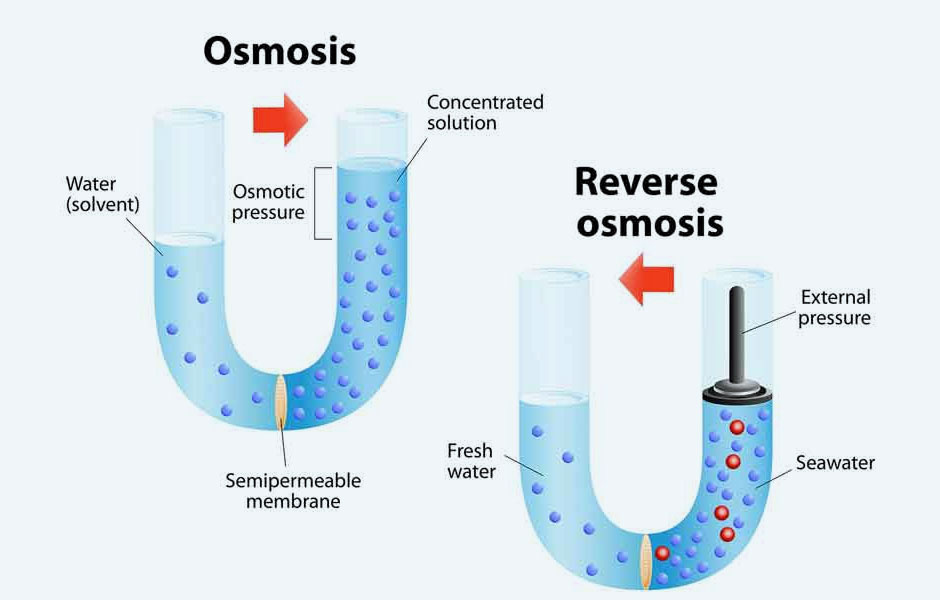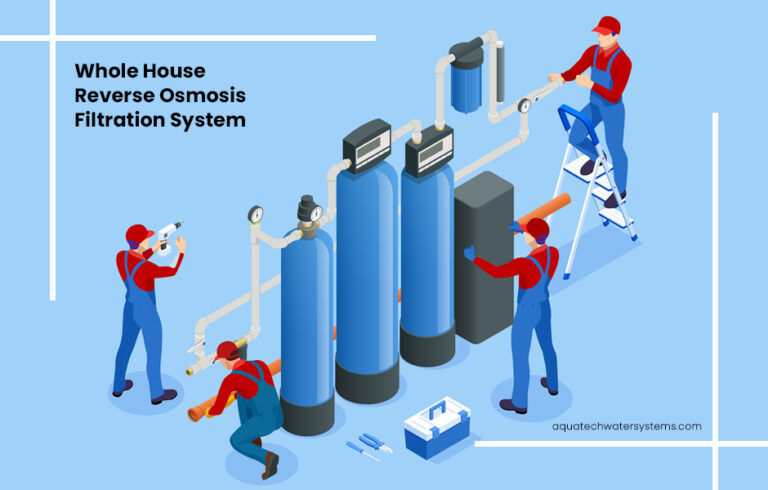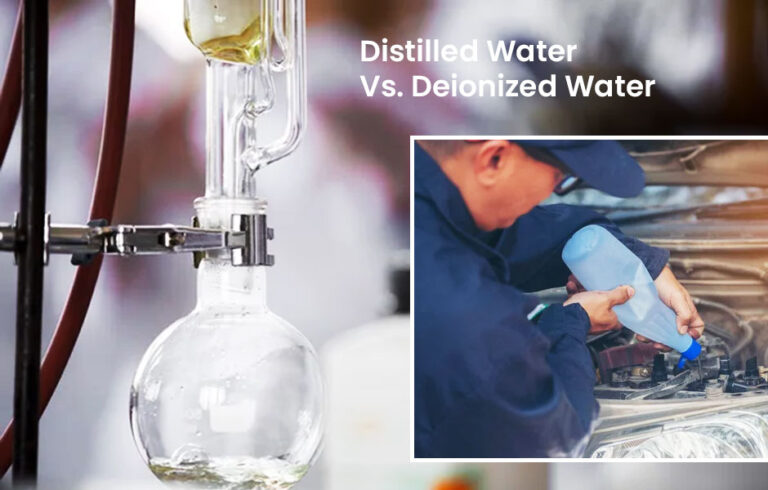There are different types of water available on the market these days. There is much debate about which type of water is better for you – reverse osmosis or mineral water.
Both have their pros and cons, but which one is the best for you? Let us look at each type of water and see what the experts say. This article will explain the advantages of reverse osmosis and mineral water, as well as assist you in determining which one is best for your needs.
What is reverse osmosis, and what are the benefits?
Reverse osmosis is a water filtration system that removes impurities and toxins from water. This process can purify both fresh and saltwater, making it an essential tool for ensuring access to clean drinking water.
It is often used to treat tap water or well water, and it is one of the most effective ways to remove pollutants from the water. You can install reverse osmosis systems in your home or office, and they are a great way to improve the quality of your water.
How does reverse osmosis work?
Reverse osmosis is a separation process that uses pressure to force a solution through a semipermeable membrane. The pressure causes water molecules to move from areas of high concentration, like dirty water, to areas of low concentration.
This process can remove impurities from water, making it clean and safe to drink. The membrane’s pore size is much smaller than the particles in the solution, so only water molecules can pass through.

Reverse osmosis filtration systems are used both in residential and commercial settings. They can be used to purify water for drinking, cooking, or bathing. They are also used in industrial applications.
Benefits of using reverse osmosis water
- Improved water quality – Reverse osmosis removes impurities and contaminants from water, leaving you with cleaner and safer drinking water.
- Better tasting water – If you have ever had tap water that tastes bad, a reverse osmosis system can help improve the taste. It tastes better because all of the contaminants that can cause water to taste bad are removed.
- Reduces the risk of disease – By removing toxins and pollutants from your water, a reverse osmosis system reduces your risk of developing diseases caused by contaminated water. Check out the common drinking water-related diseases here: https://www.cdc.gov/healthywater/drinking/public/water_diseases.html
- Reduced environmental impact – Producing reverse osmosis water requires less energy than other methods, like distilling or boiling water. This can reduce greenhouse gas emissions and have a more negligible environmental impact.
- Prevents scale build-up – Reverse osmosis systems use water filters to remove impurities, preventing scale build-up in your pipes and appliances.
- Cost-effective – Reverse osmosis systems can be expensive to install, but they are cheaper to operate than other water treatment methods.
Now that we have looked at the benefits of reverse osmosis, let us look at mineral water.
What is mineral water, and what are the benefits?
Have you ever wondered what mineral water is? Many people think it is just water with minerals, but there is a lot more to it.Mineral water is a natural source of water that contains minerals and other trace elements. It can come from various sources, including underground springs and protected aquifers.
Mineral water is often bottled and sold as a health drink since it is thought to be more beneficial than regular tap water. However, there is limited scientific evidence to support this claim. Mineral water benefits may vary depending on the minerals present in the water.

What is the best way to turn mineral water into a drinkable form?
Mineral water is a type of water that contains minerals and often other trace elements. It can come from different sources, including underground springs, wells, or glaciers. Processing mineral water ensures that the water meets specific standards for safety and quality.
The water is first filtered to remove any impurities. Next, it is disinfected to kill any bacteria or viruses present. Finally, the water is bottled and sealed to preserve its quality.
Benefits of using mineral water
- Helps maintain healthy bones – Mineral water is a good source of calcium, vital for bone health.
- Aids in digestion – Some minerals in mineral water, such as magnesium, can help with constipation and other digestive problems.
- Boosts the immune system – Minerals like zinc and selenium help to boost the immune system and protect against diseases.
- Reduces stress – Some minerals, such as magnesium have been shown to reduce stress and promote relaxation.
- Improves skin health – Minerals like zinc and silicon can help to improve the appearance of your skin.
- Detoxifies the body – Mineral water can help remove toxins from the body and improve overall health.
- Hydrates the body – Proper hydration is essential for overall health, and mineral water can help to provide it.
As you can see, there are many benefits of using mineral water. It is a natural source of water that is high in minerals and other trace elements. This makes it beneficial for your health in a variety of ways.
How to choose between RO water and mineral water?
If you are deciding between RO water and mineral water, consider a few things. First, think about your needs. If you are looking for a way to improve your health, mineral water may be the better option. However, if you are looking for a way to reduce your disease risk, RO water may be the better choice.
Second, consider the cost. RO water systems can be expensive to install, but they are cheaper to operate than other water treatment methods. With the RO monthly subscription option becoming more popular, you can get an RO system for a fraction of the cost. Mineral water is often more costly than RO water, but it may be worth it if you need to improve your health.
Third, think about the taste. Some people prefer the taste of mineral water, while others find it too strong.
Ultimately, the choice between RO water and mineral water is personal. Consider your needs and preferences before making a decision. It is crucial to weigh the pros and cons of both mineral water and RO water before deciding which type of water is best for you.
Pros and cons of both types of water
Pros of RO water:
- Clean from impurities – RO water systems remove contaminants from water, including minerals, chemicals, and bacteria. As a result, it is entirely free from pollutants and disease-causing organisms.
- Affordable – RO water systems are relatively cheap and affordable to install and operate. Both purchasing and rental options are available.
- Good for the environment – RO water systems do not use bottles, chemicals or other pollutants to clean water. This makes it a safe and environmentally friendly option.
Cons of RO water:
- Removal of beneficial minerals – RO water systems can remove beneficial minerals from water, reducing its health benefits. However, you can overcome this drawback by adding remineralization cartridges to your RO system.
- Waste of water – RO water systems can waste a lot of water. For every gallon of clean water produced, up to 4 gallons of wastewater is produced. This can be a problem in areas with water shortages.
- Shorter shelf life – RO water has a shorter shelf life than other types of water, so it is essential to drink it soon after it has been purified.
Pros of mineral water:
- Beneficial minerals – Mineral water is high in beneficial minerals, improving your health.
- Longer shelf life – Mineral water has a longer shelf life than other types of water, so it is convenient to store.
- Good taste – Many people prefer the taste of mineral water because it is not as flat as other types of water.
Cons of mineral water:
- Expensive – Mineral water can be more expensive than other types of water. The production cost is higher because it is bottled in smaller quantities.
- Not so easily accessible – Mineral water can be challenging to find in some areas because it is not as widely available as other types of water.
- Hazardous to the environment – Mineral water packed in plastic containers can be harmful to the environment and contain toxins that could cause health issues. Further reading: https://www.ewg.org/consumer-guides/five-reasons-skip-bottled-water
- May not be as clean – Some mineral water brands may not remove all the impurities from water. As a result, it is essential to check the labels to ensure you are getting a quality product.
In the end, it is up to you to decide which water is better for you. Both have pros and cons, so make an informed decision and drink up!
The cost difference between RO water and mineral water
The cost of RO water and mineral water can vary depending on a few factors. The type of water, the brand, and the size of the container are all essential factors to consider. Generally speaking, RO water is more affordable than mineral water. This is because RO water systems are relatively cheap to install and operate.
Buying and Rental Options:
There are two main options to get an RO water system: You can buy one outright or rent one from a nearby drinking water company.
The upfront cost of buying an RO water system can be pricey, followed by filter replacement costs every 6 to 12 months. However, renting an RO water system might be the better option if you are on a budget. The average price of an RO water system is between $300 and $1000.
Renting an RO water system is a more affordable option for those who do not want to commit to buying one outright. The average cost of renting an RO water system is between $20 and $40 per month. This includes filter change costs and maintenance fees.
However, mineral water is often more expensive than RO water because of the production cost. Additionally, shipping and handling costs can add to the overall price of minerals. However, if you are looking for something to drink, RO water is more affordable.
Factors to consider when choosing between RO water and mineral water
- Your needs and preferences
- The cost of each type of water
- The taste you prefer
- The availability of RO and mineral water in your area
- Health benefits of RO and mineral water
- The environmental impact
- The convenience (delivery, installation, maintenance etc.)
Final thoughts:
So, what is the verdict? Reverse osmosis or mineral water? In general, reverse osmosis filtered water is better for you. However, it is important to remember that all reverse osmosis systems are not created equal – some may remove more contaminants than others. So, if you are looking for a high-quality RO system that will give you great-tasting, healthy water, check out our selection of top-rated RO water filters.
This article was originally published in Mar-2022 and was last updated in Mar-2022
Author: Donna J H
Category: Drinking Water




